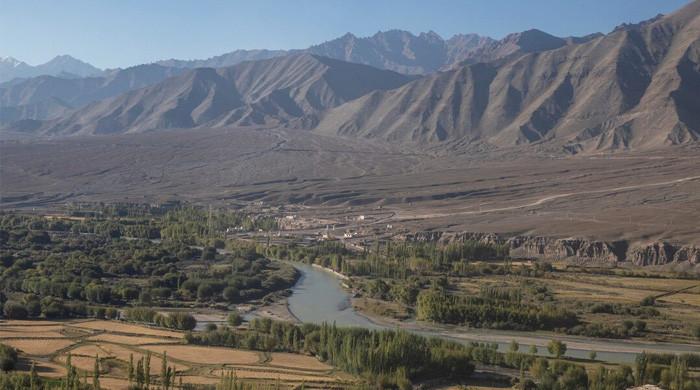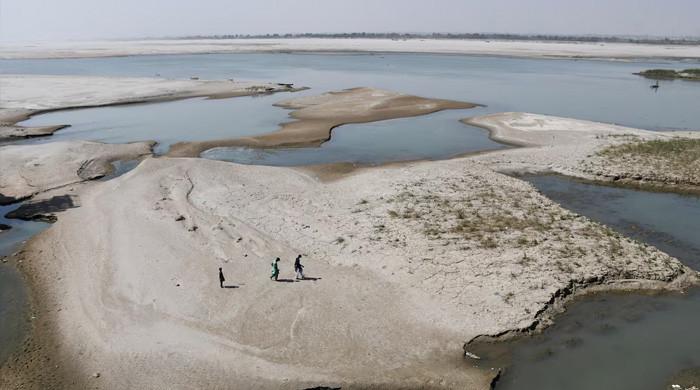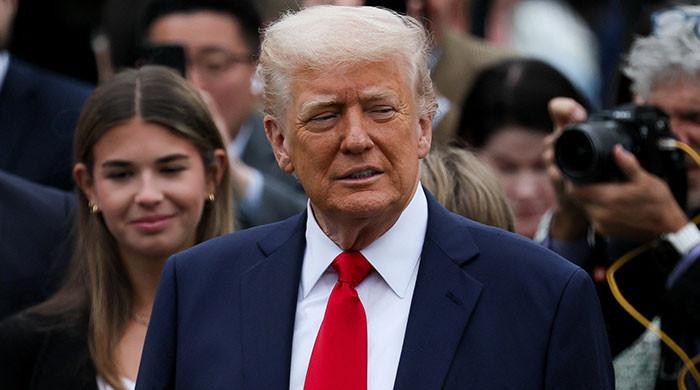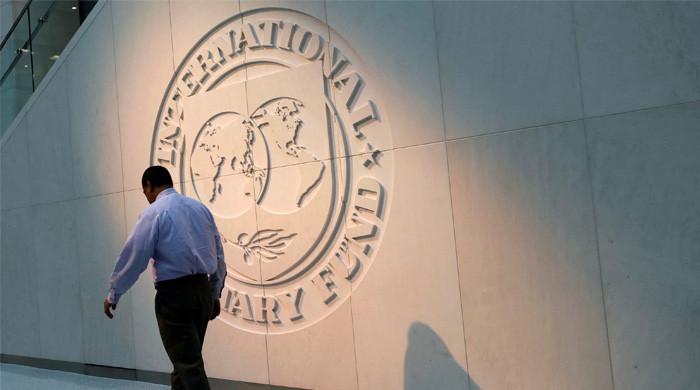International trade on the line
Barriers and hurdles created by Trump's tariff policy have potential to disrupt smooth supply chain of trade and commerce worldwide
April 03, 2025
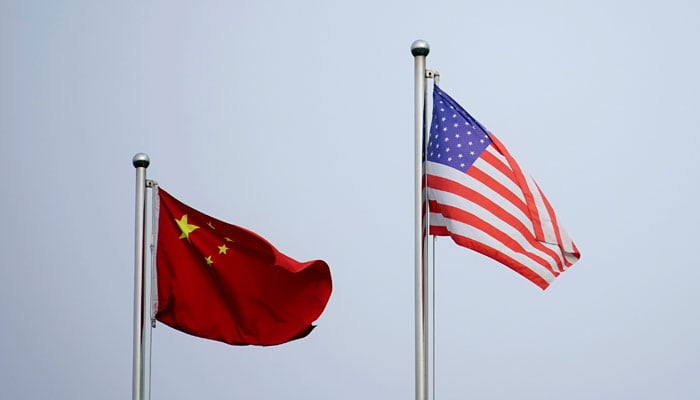
The trade war has begun, and international trade is currently under threat. International relations are also under strain, primarily due to new tariffs imposed by the US administration on potential adversaries and countries around the world.
There is no doubt that revenues, tariffs, and taxes are essential for governments to function. However, businesses do not thrive under high taxes, and the same applies to international trade and commerce.
The use of international tariffs as a weapon of war, on such a large scale by the US, appears erratic, irrational, and unprecedented. The World Trade Organisation (WTO) is now facing a potential existential threat in this new era of trade wars.
New international alignments are emerging after US President Trump announced tariffs on imports of goods and services from Canada, Mexico, India, China and the European Union (EU). Long-time Nato allies and strategic partners like India are feeling the effects of the new US priorities, especially the tariffs on products from these countries.
These nations have started discussing imposing reciprocal tariffs on US imports, which could prove detrimental to international trade in the future.
The promotion of fair international trade has always been a primary objective of the WTO, and as a signatory to the organisation, the US should not violate its fundamental principles.
This is why China is considering bringing the issue before the WTO due to the unfair treatment of its exports through the incremental tariffs imposed by the US.
Reports suggest that counter-tariffs in response to US tariffs are being proposed by all countries affected by Trump's tariff policies. Recently, the EU proposed re-imposing tariffs on US products worth 4.5 billion euros, effective April 1, followed by an additional 18 billion euros by April 13 as countermeasures.
Canada, Mexico and China are also planning similar responses, which is disrupting the atmosphere of smooth and fair trade practices. Canada imposed 25% counter-tariffs on US imports worth $29.8 billion in March 2025.
China, in turn, imposed 15% tariffs on US imports, including agricultural products, in response to the 20% tariffs the US placed on China.
This new tariff war may not be beneficial for promoting international trade. It also has the potential to undermine the goal of ensuring a smooth global supply chain. Cracks are already beginning to show in trade, with a possible recession affecting not only US business and trade partners but also the US economy itself.
This is one of the reasons for the delay in imposing tariffs, leading the US administration to reconsider its approach.
The concept of a laissez-faire economy and trade promotion is being shattered by the unpredictable trade tariffs announced by President Trump, seemingly to protect US businesses.
In reality, these actions are likely to harm international trade and challenge the entire concept of free trade. The WTO may be compelled, as indicated by China, to intervene and play a significant role as an arbiter to resolve the conflict of interest in this tariff war.
Historically, protectionist policies, which were used before the current era of relatively free trade, did not yield the best results. There has been ongoing debate about whether these policies truly protect economies or ultimately hinder them by stifling competition.
The lack of competition gave rise to monopolisation, which rarely led to optimal outcomes. In contrast, competition and the free flow of trade — combined with increasing efficiency, value addition and quality improvements in goods and services — have produced the best results worldwide.
Closed economies struggled due to the absence of competition and were eventually overtaken by more open economies. The Russian and Chinese economies began to thrive when they were integrated into global competition by involving the private sector.
The General Agreement on Tariffs and Trade (GATT) laid the foundation for the WTO in 1995 to regulate and facilitate international trade. The Geneva-based WTO is an intergovernmental organisation with 166 members, facilitating nearly 98% of global trade by rationalising international tariffs to promote fair competition.
It works to ensure that trade flows as smoothly as possible. In the age of Artificial Intelligence (AI), which is driving digital industrialisation and enhancing e-commerce, a robust regulatory framework has become essential. WTO members are already pushing to establish a regulatory mechanism that makes the best use of AI in commerce and trade.
The tariff war initiated by President Trump threatens to disrupt the entire free trade framework. The world has made significant progress in shaping international trade, and the transactional approach of the new US administration under Trump could undermine this progress.
Therefore, the WTO must be activated, as China has suggested, to protect the free trade system. People around the world are looking for a bold and proactive role for the WTO in addressing these concerns. The basic principles of free trade are under threat due to the arbitrary and selective imposition of tariffs by the US.
The decline in cooperation on trade tariffs from the US could also disturb regional trade and the global free trade mechanism. Preferential trade, free trade, and regional trade arrangements are crucial for promoting international trade.
Regional trade blocs such as Safta, Nafta, SCO, BRICS, Asean and Saarc have played significant roles in ensuring the free flow of trade and promoting commerce.
The new US tariff policy may disrupt these mechanisms, drawing criticism from countries like Canada, Mexico, India, China and the EU, which are seeking to counterbalance the US move of imposing tariffs unilaterally and without justification.
Modern economic theorists emphasise the importance of regional economic integration in promoting trade. Inter-regional and intra-regional trade corridors are essential for progress and development. Regional connectivity is key to fostering trade and commerce for economic growth.
The principles of trade promotion through such connectivity are vital to the success of global trade. Tariffs and non-tariff barriers hinder international trade. The current US tariff policies may harm the concept of regional trade promotion, particularly in the Americas. They could also lead to realignments in other regions, such as India-China cooperation, to advance trade and commerce, as both are equally affected by the US tariff policy.
The role of the WTO has become more critical than ever in addressing issues related to international trade. Policymakers are concerned that the new trade and tariff war initiated by the US may backfire in the future.
We are in an age of AI and technological transformation, which is driving commerce and trade at unprecedented speeds. Countries like India, China and the EU are outperforming others in nearly every field, from industrial development and technological innovation to global commerce and trade. The US tariff policy is creating obstacles that need to be reevaluated in light of new realities.
There is no denying that new international and regional alignments will shape the future of international trade. The barriers and hurdles created by Trump's tariff policy have the potential to disrupt the smooth supply chain of trade and commerce worldwide. The need of the hour is to promote trade and e-commerce by harnessing the benefits of AI and technological innovations.
The role of the WTO must be strengthened to ensure the swift and effective implementation of trade rules based on tariff rationalisation, to support the growth of international trade and commerce. A slow or inadequate response from the WTO could harm international trade for an extended period, and this must be addressed.
The writer is a former additional secretary and can be reached at [email protected]
Disclaimer: The viewpoints expressed in this piece are the writer's own and don't necessarily reflect Geo.tv's editorial policy.
Originally published in The News




